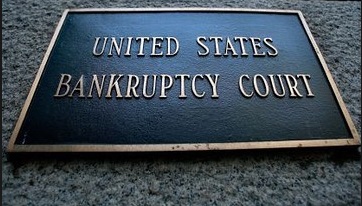 The vast majority of bankruptcy cases are filed by consumers rather than businesses. Most consumer cases are filed under either Chapter 7 or Chapter 13 of the federal Bankruptcy Code. Approximately 70 percent of cases are Chapter 7 liquidations filed by consumers, and nearly 30 percent are Chapter 13 wage-earner repayment cases. This fact sheet describes the United States Trustee’s primary responsibilities in Chapter 7 and Chapter 13 consumer bankruptcy cases.
The vast majority of bankruptcy cases are filed by consumers rather than businesses. Most consumer cases are filed under either Chapter 7 or Chapter 13 of the federal Bankruptcy Code. Approximately 70 percent of cases are Chapter 7 liquidations filed by consumers, and nearly 30 percent are Chapter 13 wage-earner repayment cases. This fact sheet describes the United States Trustee’s primary responsibilities in Chapter 7 and Chapter 13 consumer bankruptcy cases.
Chapter 7 Cases
In Chapter 7 cases, the United States Trustee litigates issues that affect the integrity of the bankruptcy system. For example, the United States Trustee might:
- Argue that granting the debtor a bankruptcy discharge would constitute a “substantial abuse” of the bankruptcy process.
- Object to excessive fees requested by the debtor’s attorney.
- Take action against unlawful practices by bankruptcy petition preparers–generally, non-lawyers who receive a fee to prepare a consumer debtor’s bankruptcy papers.
The United States Trustee also appoints and supervises the Chapter 7 trustees who administer consumer debtors’ bankruptcy estates. In most Chapter 7 cases, no assets are available for distribution to creditors. However, if a Chapter 7 debtor has property that is not exempt from creditors’ reach under state or federal law, the trustee may sell that property and distribute the money to creditors.
The United States Trustee appoints each Chapter 7 trustee to a panel for up to one year, renewable at the United States Trustee’s discretion; these “panel trustees” are then assigned to Chapter 7 cases on a blind rotation basis. The United States Trustee supervises the panel trustees’ administration of individual debtor estates; monitors the trustees’ financial record-keeping; and imposes other requirements to ensure that the trustees carry out their fiduciary duties.
Chapter 13 Cases
In Chapter 13 bankruptcy, the United States Trustee supervises the private trustees who administer Chapter 13 cases. In this chapter, the trustee does not liquidate the debtor’s assets, but instead evaluates the debtor’s financial affairs and makes recommendations to the court regarding the debtor’s proposed repayment plan.
A Chapter 13 debtor must propose a plan that devotes all disposable income to debt repayment over a period of up to five years. Most Chapter 13 cases are administered by “standing trustees” appointed by the United States Trustee to administer all cases filed in a particular geographic area.
As with Chapter 7 panel trustees, the United States Trustee supervises the Chapter 13 standing trustees’ administration of individual bankruptcy estates; monitors the trustees’ financial record-keeping; and imposes other requirements to ensure that the trustees carry out their fiduciary duties. The United States Trustee’s supervisory actions include:
- Periodically reviewing the trustees’ case reports, budget reports, bank account information, management skills, court performance, and similar information.
- Ensuring that trustees are bonded.
- Ensuring that trustees are independently audited.
- Determining trustees’ maximum annual compensation and actual necessary expenses.
- Providing training for trustees.
- Monitoring trust account funds.
From The United States Department of Justice website: THE U.S. TRUSTEE’S ROLE IN CONSUMER BANKRUPTCY CASES
